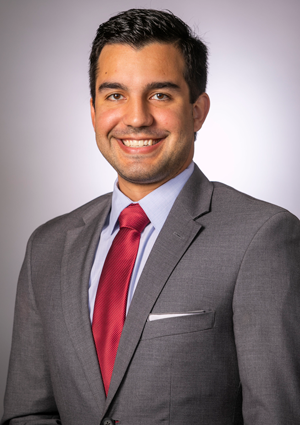Why you should count teaching as an essential part of your medical journey
by Emma Mattson

M4 Daniel Pereira has a message for med students: teaching is part of your calling.
Pereira, who will begin orthopedic surgery residency this summer, has maintained an enthusiasm for medical education for years. In the past academic year alone, he engaged in translation work for Nashville’s Department of Health, taught a beginner’s guitar class over Zoom, and co-founded a chess club to pass along his love for the game to other med students.
So, when he got an email from a local Nashville teacher asking him to join her classroom for a Friday morning this spring, Pereira jumped at the chance.
When the selected date rolled around, Pereira hopped onto a Zoom call with a high school classroom to share his experience applying to med school, managing med student life, and choosing a specialty.
The session was extremely well attended. Pereira estimates that 60 to 70 high school upperclassmen joined the meeting to watch his presentation and ask questions. While he felt a little nervous to see so many faces, he soon felt right at home.
“I love education,” Pereira said. “I love to teach. I love helping people achieve whatever they want to achieve.”
Pereira’s teaching has a mission: he plans to go into orthopedic surgery and wants to show other underrepresented students that they can do the same.
“It would be a dream … for students who are minority students or, like me, who are Hispanic, immigrants, underserved populations— for them to see, ‘I can do this. Someone like me can become a doctor or a surgeon,’” Pereira said.
After sharing his experience and encouraging the students to consider their own paths, Pereira opened up the floor for questions. The students had plenty: they wanted to know about everything from surgery to applying to college to socioeconomic barriers in med school.
The conversation lasted around an hour and left Pereira hopeful for continued connections with this school and others in Nashville that work with underserved student populations.
For Pereira, this kind of teaching isn’t just an incidental opportunity— it’s a crucial part of the medical calling.
“We as medical students— really, [any] people who seek higher education —have been given a gift and an opportunity to be able to learn, grow in knowledge, and develop skills that we can turn around and teach others,” Pereira said.
For some med students, like Pereira, that might take place in a high school classroom. For others, it might look like patient education within a clinical setting or even medical innovation teamwork alongside trainees and colleagues.
“At the end of the day, we’re all going to be called physicians,” Pereira said. “But we’re also all going to be teaching.”